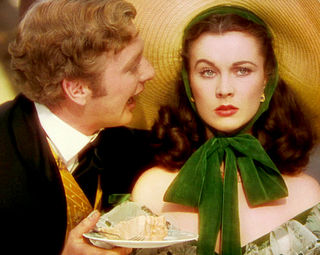Sex
5 Reasons Men Insist That Women Be Difficult
Why being difficult is the only choice for women
Posted May 2, 2014 Reviewed by Lybi Ma
As I said in the companion post to this piece, compulsive overeaters do not have a problem with food, they have a problem with living. No arena illuminates this better than male-female relationships.
What I have always found curious about *hetero-erogenous men is how terribly they treat women. (*Heterosexual, though commonly misused, describes a specific act, not a person; hetero-erogenous is the scientifically correct term.) Men systematically discriminate against women in the workplace, the courts, the home, medicine, marketing tactics, education, and the church. Where is the logic in that? This is understandable (although not acceptable) in homo-erogenous men, but not men who supposedly like women.
That is why when most men tell me they like women I interpret it as they like to be on top. Men clearly do not like women or they would not consistently mistreat women, globally. However, liking, self-serving, and being addicted are three very different things. I think most men are guilty of the latter two, whereas very few are guilty of the former.
This is why most hetero-erogenous men prefer “raving bitches.” Like the euphemism itself, this preference has more to do with the needs of males than the nature of females. Women become this way because that is the best strategy for surviving in a male-dominated world because men crave it, insist on it, and engender it in their daughters. Why is that?
1. Men are competitive. If they are not comparing penis size in the locker room, they are comparing cars, bank accounts, or competing in sports or video games. For many men, "bitch" is synonymous with difficult. The difficult woman: is not controllable, disagrees with his opinion, does not conform to his rules, and refuses to provide sex on demand. For a male “putting that bitch in check,” is getting a woman to submit to his whims, a substitute for the competition that men enjoy with each other.
The reason men enjoy competition with each other is because of the neurochemical rewards, such as dopamine (the brain’s happy drug) endorphins, serotonin, and adrenaline. That is why competing with grossly inferior opponents is boring; there are no neurochemical rewards to speak of. Likewise, there are very few neurochemical rewards in women, who are not difficult. Hence, they are boring, just as the “nice-guy” bores women. In addition, men have more testosterone receptors in their amygdala, which makes competition more rewarding for men than women. Thus, the difficult woman promotes hetero-erogenous male and female relationships.
2. Men are very sexual. Sadly, if women did not have vaginas, most hetero-erogenous men would not talk to them; as it stands, they barely talk to them anyway. The amygdala bilaterally regulates sex and aggression. However, dimorphic sexual differences between the amygdala in men and in women generate different emotional responses to sex, promoting different sexual proclivities. The physiological sequelae to sex and to fighting are similar: increased respiration and cardiovascular function, adrenaline, endorphins. Thus, conflict, between a man and a difficult woman compensates for dimorphic brain differences between men and women that predispose men and women to deriving sexual gratification differently.
3. Men are a hormonal mess. Women have monthly hormone changes. Figuratively speaking, men are always on their periods. Testosterone is a fast-acting, aggressive hormone. Men have between 10 and 100 times more testosterone than women do. This is why it surprises no one when you see two men in a public park fighting to the death over a plastic spoon. The higher the testosterone, the more important it becomes to win, gain power, and defend territory through demonstrative strength, and the less important quality social relationships become.
Men also have many more vasopressin receptors than women do. Vasopressin is the lust hormone. When vasopressin and testosterone release simultaneously, it increases aggression—connect the dots. Vasopressin and testosterone are fundamental hormonal currencies in hetero-erogenous mating and quasi-mating scenarios. It makes men aggressive.
Thus, at the least being a “raving bitch,” or a strong woman with good self-agency skills is a protective mechanism. At most, it is self-protective and provides an avenue for men to express this heightened aggression.

4. It is an addiction. Variable reinforcement, which gives somewhat random rewards to specific behaviors, triggers addiction. Fixed reinforcement means if you do X you get Y, and thus do 2X and get 2Y. In dating, that would translate into: Take a woman to McDonald’s and get to first base. Take a woman to Red Lobster and get to third base. Take a woman to a five-star restaurant and you get dessert.
If men know what to do to achieve an end, it is easy to calculate. Thus, fixed reinforcement leads to reasonable behavior, because the rules are clear. However, with variable reinforcement, what you put in does not always equal what you get back. With a difficult woman, there is no guarantee of sex or affection. Take her to a five-star restaurant and she might tell you how much better her ex-boyfriend would have looked in the tie you are wearing.
As with any type of gambling, the appeal is in the dopamine, which releases on the anticipation of reward. As with any dopaminergic behavior, the opportunity for addiction exists because wanting something causes more dopamine release than actually getting it. This is how goal-directed behaviors in the nucleus accumbens become stimulus-response behaviors in the ventral striatum, which is the endorsing signature of habit formation, or addiction.
5. Confirmation bias and self-perception: The human brain is busy and arrogant. Confirmation is when it makes an assessment, creates a belief and subsequently looks for evidence to support that belief, and systematically ignores information that challenges it. That is why some Republicans can see no right in President Obama, and some Democrats can see no wrong. Men depict women negatively on every level from religion to marketing. Men are pre-conditioned to thinking of women in a negative fashion, they have been problematic since Eve.
Hence, the male brain looks for things to reaffirm this. The “raving bitch” delivers this in spades and the male brain is on it up like a stray cat lapping up a saucer of milk. In addition, our self-esteem determines our changing self-perception, which guides behavior. Valuing the opinions of others about our selves is one of the requirements of membership in a social species. Negative group opinion risks dismissal. For the ancients, group dismissal meant death, so these evolutionary rivers run deep. Hence, we base a large part of our self-perception on how others see us. That is why physically attractive people are more vulnerable to vanity. It also drives women to become the raving bitches reflected in the eyes of men operating under confirmation bias.
As a neutral homo-erogenous bystander, in terms of hetero-erogenous relationships and women being raving bitches: I understand that women are the bitches because bitch describes the female of the species. However, tell me again, who's the raving one? Remain fabulous and phenomenal.
References
NeuroImage 30 (2006) 452 – 461Sex-related differences in amygdala functional connectivity during resting conditions (LA Kilpatrick LF Cahill et al)
Aggressive Behavior Volume 16, Issue 3-4, pages 223-229, 1990 Medial amygdala and aggressive behavior: Interaction between testosterone and vasopressin (JM Koolhaas et al)




